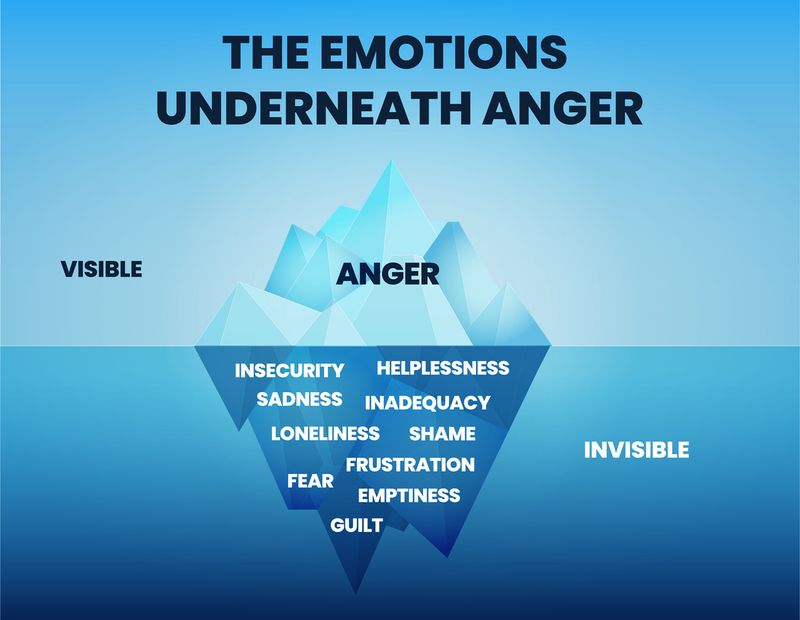Life is a journey filled with lessons, and by the age of 30, every man should have grasped certain truths that are essential for personal growth and maturity. These truths are not just about survival but thriving, understanding oneself, and interacting meaningfully with the world.
1. No one’s coming to save you
In the grand scheme of life, waiting for a savior is often a fruitless endeavor. Every man must come to terms with the fact that he is his own hero. Relying heavily on others for rescue can lead to a cycle of disappointment and dependency.
Taking responsibility for your own life encourages self-reliance and empowers you to face challenges head-on. It fosters resilience and adaptability, crucial traits for any adult.
By understanding that no one is obligated to solve your problems, you develop a proactive attitude towards your life and goals. This truth, while daunting, is liberating once fully embraced.
Véase también: 17 Harsh Truths Every Woman Must Learn In Her 20s
2. You’re not owed anything
The world operates on its own terms, not ours. Feeling entitled can lead to bitterness and frustration. It’s crucial to understand that no one owes you success, happiness, or even fairness.
Embracing this truth allows you to approach life with humility and gratitude. Instead of waiting for what you think you deserve, work for what you want. This shift in mindset fosters a sense of agency and control over your life.
Realizing that nothing is guaranteed pushes you to seize opportunities and create your own path. It encourages a more grounded and realistic approach to personal growth.
3. Being busy isn’t the same as being productive
In today’s fast-paced world, being busy is often confused with being productive. Many equate a packed schedule with success, but this is a misconception. Real productivity is about efficiency and meaningful output, not mere activity.
Understanding this distinction helps you prioritize tasks that truly matter, maximizing both time and energy. A man who grasps this truth will focus on quality over quantity, leading to greater satisfaction and achievement.
By reassessing what you spend your time on, you can align your activities with your goals, ensuring that your efforts are not in vain.
4. Most pain comes from avoidance
Avoidance might provide temporary relief, but it often leads to greater pain. Whether it’s avoiding difficult conversations or evading responsibilities, postponing issues can compound stress and anxiety.
Confrontation, though uncomfortable, is usually the path to resolution. Acknowledging and addressing problems head-on can prevent them from spiraling out of control.
By accepting this harsh truth, you empower yourself to face life’s challenges directly, reducing long-term suffering. Embracing discomfort in the short term often paves the way for greater peace and fulfillment.
5. Your partner isn’t your therapist
Relying on your partner to fix your emotional issues is an unfair burden. While support from loved ones is essential, expecting them to be your therapist can strain relationships. Emotional health is a personal responsibility.
Understanding this truth encourages you to seek professional help when needed, fostering a healthier relationship dynamic. Partners should complement each other, not be each other’s sole source of healing.
By taking charge of your emotional well-being, you contribute to a more balanced and stable partnership, where both individuals can grow together without undue pressure.
6. Anger often hides fear or sadness
Anger is a powerful emotion that can mask deeper feelings like fear or sadness. It’s essential to understand that anger is often a secondary emotion, a defense mechanism to protect vulnerability.
By recognizing this, you open the door to deeper introspection and emotional growth. Addressing the root cause of anger can lead to more effective communication and healthier relationships.
This truth encourages you to delve beneath the surface, fostering a greater understanding of yourself and others. It’s a step towards emotional intelligence and maturity, essential traits for any man.
7. People respect consistency more than intensity
Consistency over intensity is a mantra every man should adopt. While bursts of enthusiasm can be impressive, it’s the steady, reliable efforts that build trust and credibility.
By being consistent, you demonstrate commitment and reliability, traits that are highly respected in both personal and professional spheres. This leads to stronger connections and opportunities.
Consistency reflects discipline and determination, qualities that ultimately lead to success. This truth underscores the importance of persistence and staying the course, even when immediate results are not visible.
8. Your career won’t love you back
A career can provide fulfillment and purpose, but it will not reciprocate your devotion. Jobs are transactional by nature. Loving what you do is important, but it’s crucial to maintain a balanced perspective.
Remember that personal relationships and self-care should not be sacrificed for work achievements. By acknowledging this truth, you focus on what truly matters in life.
Invest in yourself and your connections outside of work. This balance ensures that when your career changes, as it inevitably will, you have a rich and fulfilling life beyond it.
9. Emotional literacy is a skill—not a weakness
In a world that often values stoicism, understanding and expressing emotions is sometimes seen as weakness. However, emotional literacy is an essential skill that enhances relationships and self-awareness.
Recognizing and articulating your feelings leads to better communication and deeper connections with others. It allows for empathy and understanding, fostering more meaningful interactions.
This truth encourages you to embrace vulnerability as strength. Cultivating emotional intelligence is crucial for personal growth and maturity, shaping a more balanced and fulfilling life.
10. Your ego can sabotage your best relationships
Ego can be a significant barrier to healthy relationships. When pride prevents you from admitting mistakes or acknowledging others’ perspectives, it erodes trust and connection.
Recognizing how ego influences your actions allows you to step back and reassess situations. It promotes humility and openness, qualities essential for strong relationships.
This truth emphasizes the importance of setting ego aside to foster genuine bonds. By valuing collaboration over competition, you nurture relationships that are supportive and enduring.
11. Owning your mistakes earns respect
Mistakes are inevitable, but how you handle them makes all the difference. Owning up to errors demonstrates integrity and earns respect from others. It’s a testament to your maturity and responsibility.
This truth encourages a culture of honesty and transparency, where mistakes are seen as opportunities for growth rather than failures. Acknowledging your shortcomings fosters a learning mindset.
By taking responsibility, you build trust and credibility, essential components of strong personal and professional relationships. This approach paves the way for continuous improvement and success.
12. Real confidence is quiet
True confidence doesn’t need to be loud or boastful. It’s a quiet assurance, a sense of self-worth that doesn’t seek validation from others. This type of confidence is grounded and authentic.
Understanding this truth allows you to focus on inner qualities rather than external approval. It’s about knowing your value and standing firm in it, regardless of others’ perceptions.
By embracing quiet confidence, you project strength and stability, attracting respect and admiration naturally. It’s a powerful presence that speaks for itself, without the need for fanfare.
13. Health is your foundation—not a bonus
Health should be a priority, not an afterthought. Without a solid foundation of physical and mental well-being, other aspects of life can suffer. This truth underscores the importance of maintaining a healthy lifestyle.
By investing in your health, you ensure that you have the energy and vitality to pursue your goals and enjoy life’s pleasures. It’s about prevention and longevity.
This approach fosters resilience and enhances quality of life, enabling you to handle stress and challenges more effectively. Health is the cornerstone of a fulfilling life.
14. Silence can be powerful if it’s thoughtful
Silence is not just the absence of sound; it’s a tool for introspection and clarity. Thoughtful silence allows you to process information, reflect on experiences, and make informed decisions.
This truth highlights the value of pausing amidst the noise of daily life. It’s in these quiet moments that insights and understanding often emerge.
By harnessing the power of silence, you cultivate mindfulness and patience, qualities that enhance personal growth and decision-making. It’s about finding balance and calm in an often chaotic world.
15. You become what you tolerate
The standards you set for yourself and others define who you become. Tolerating mediocrity or disrespect can lead to a life less fulfilling. This truth emphasizes the importance of setting and maintaining high standards.
By being mindful of what you allow, you shape your environment and relationships. It’s about self-respect and asserting your values.
This truth encourages you to be proactive in creating the life you desire, refusing to settle for less than what aligns with your principles and aspirations. It’s a call to action for personal excellence.
















